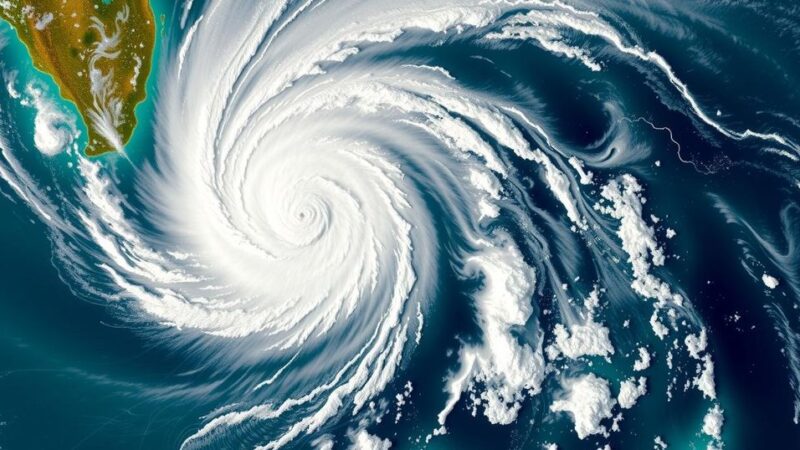Cyclone Chido, a Category 4 storm, struck Mayotte before making landfall in Mozambique, resulting in widespread destruction and affecting around 1.7 million people. With reports indicating hundreds of fatalities, agencies are responding to the crisis, addressing immediate needs and coordinating relief efforts.
Cyclone Chido, classified as a Category 4 storm, made landfall in Pemba, the capital of Cabo Delgado province in Mozambique on December 15, after causing significant destruction in the French overseas territory of Mayotte. The storm brought with it devastating winds exceeding 200 km/h and intense rainfall, impacting approximately 1.7 million individuals in Mozambique, as reported by the International Organization for Migration. Agencies such as UNICEF, the Malawi Red Cross, and the IOM have mobilized to assess the damage and implement emergency response measures in the affected areas.
Cyclone Chido is a powerful tropical cyclone that has significantly affected regions in southern Africa, particularly Mayotte and Mozambique. Mayotte, which is situated at the northern end of the Mozambique Channel, suffered severe consequences from the cyclone prior to its landfall in Mozambique. The cyclone’s trajectory caused widespread devastation, raising concerns about casualties and long-term impacts on vulnerable populations. The region has not seen such a severe cyclone in over 90 years, underlining the unusual intensity of this weather event.
In summary, Cyclone Chido has emerged as a catastrophic natural disaster, wreaking havoc across Mayotte and Mozambique. With high winds, heavy rains, and reports of significant property damage, humanitarian organizations are actively engaging with local authorities to provide relief to the affected populations. The cyclone’s unprecedented strength highlights the growing threats posed by extreme weather events in vulnerable regions, necessitating urgent and coordinated disaster response efforts.
Original Source: www.downtoearth.org.in






